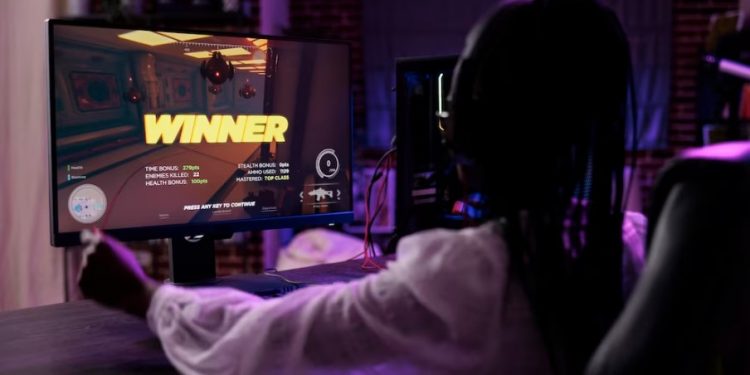At Zagrano, we have a secular custom that we start our reviews with an assessment of the plot, and only then we move on to the music. In the case of Cyberpunk 2077, however, this is simply not possible. If this game was separated from music and broader subculture, it would be just another shooter with cRPG elements.
Pondsmith and CD Projekt Red decided to put a very strong, anthropological emphasis on the term ‘punk’. An accent that is not visible at all in the Ghostrunner we are reviewing. This is not even a complaint, because genre milestones such as Ghost in the Shell and Deus Ex, repeated ad nauseum when discussing Cyberpunk 2077, almost do not focus on the punk aspect of the cyberpunk genre. The examples cited are, in fact, mainly transhumanist stories. Even Shadowrun put more emphasis on the second part of the genre name than the titles I mentioned. The best reviews available on our website https://installgamepc.com/
Bolstering such a highly marginalized aspect of the genre makes the game at this particular level a milestone within it, but not only. Placing particular emphasis on the diversity or even subcultural nature of factions brings an unprecedented level of immersion. Cyberpunk 2077 leaves behind the credibility of the world of GTA V. To some extent because it doesn’t blink an eye and doesn’t make ironic jokes. Stiff and serious. Nobody here turns the seriousness of the situation into a joke or dark humor. The facade falls and this accusation of similarity to GTA V has no bearing on CD Projekt Red’s work at all.
The radio stations that individual gangs listen to in their localities relate to their private musical preferences and image. The station’s repertoire is also very eclectic, which is an attempt to outline the future of music, which does not necessarily have to stick to edge gatekeeping for its development. The basic axiom or theme melody is eclecticism. And he plays the main violin in presenting the atmosphere of Night City to the players. An accurate methodology when trying to reflect subcultural diversity within the multicultural metropolis of 2077.
Here we finally come to the Samurai team. To the place where Keanu Reeves passes the microphone to Dennis Lyxzén – the vocalist of Refused, as well as INVSN and nomen omen Fake Names. Dennis, a Swede by birth, was, as we could see in the Cyberpunk 2077 OST clip, heavily grilled in the studio. As Johnny Silverhand, he had to completely strip away even the slightest hint of a Scandinavian accent in his English during studio recordings. However, this is not the end of the careful approach to the credibility of the Silverhand band’s image.
Samurai is a thoroughly American band, but not the one that mainstream pop culture has accustomed us to. Samurai is not Blink 182 or Green Day. Samurai is a hardcore punk band. The sound of this band is more associated with bars where you can throw darts or get into a fight with drunk truck drivers. And so, although Dennis’ vocals at some moments resemble deathrock, cold wave – postpunk Beastmilk, basically Samurai does not sound like Refused, but rural, trailer park boorishness in the style of Bars, Doomriders or, for those less familiar with it, Cancer Bats. This is not a stadium game, although Kerry certainly made it become one after Johnny’s death.
When we hear the song titled Black Dog, we can already feel the atmosphere of the Badlands motel covered with sand, where we will come to sleep together with our protagonist during the game. There has simply never been a situation where a game development studio went so deep into subcultural immersion and intertextual thickets full of contexts. Like when V’s chat with Johnny in the hotel parking lot correlates so closely with the Black Dog lyrics.
But let’s go further. The same applies to ecology, geopolitics and other aspects of the world, which is supposed to convince with its realism, and not just be an epidermis or an excuse to make an action game – as was the case with Ghostrunner. CD Projekt Red, together with Pondsmith, created a compelling vision of probabilistic, scientific assumptions about the future of our planet. Here, the really decisive creative heads involved in this project wanted to say something important. Important from the perspective of the times we find ourselves in. Our 2020 may not look like Pondsmith’s source text, but our 2077 may look approximately like the land of 2077 in the game. I will write more about it on another occasion, because the story is not what this game is about, it is the only one that is completely defensible at the moment. Ok, I admit it – the musical setting is also correct, as I mentioned above.















